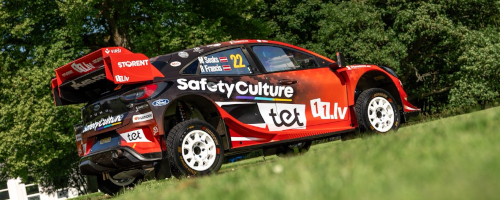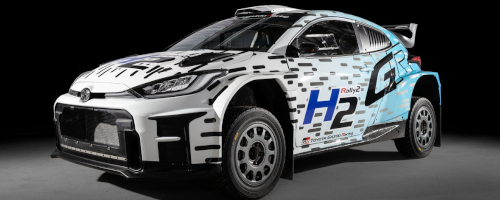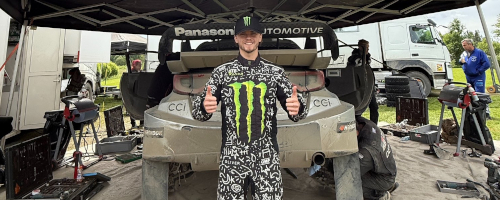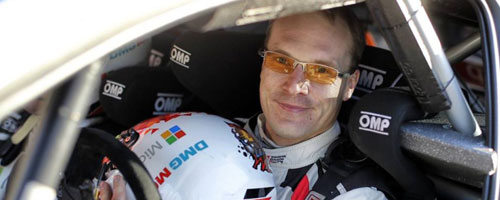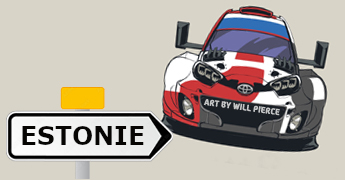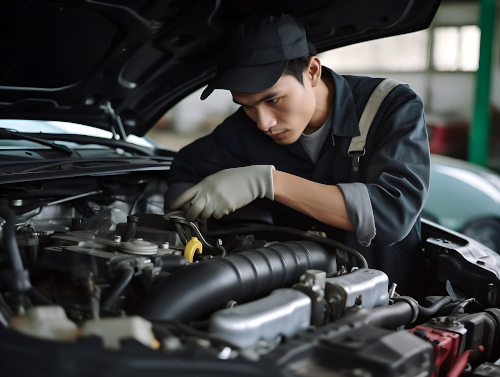
Votre moteur peut surchauffer en 5 minutes cet été
L’été représente la période la plus critique pour le système de refroidissement de votre véhicule. Les températures extérieures élevées, combinées à l’effort supplémentaire du moteur dans les embouteillages et sur l’autoroute, peuvent provoquer une surchauffe moteur en quelques minutes seulement. Le liquide de refroidissement devient alors votre meilleur allié pour éviter une panne coûteuse et dangereuse.
La surveillance régulière du liquide de refroidissement prévient efficacement la surchauffe en maintenant la température moteur dans une plage optimale, même par forte chaleur. Cette vérification simple peut vous éviter des réparations pouvant atteindre plusieurs milliers d’euros et garantit votre sécurité sur la route.
Pourquoi la surchauffe moteur s’aggrave-t-elle en été ?
En période estivale, plusieurs facteurs augmentent considérablement les risques de surchauffe moteur. Les températures ambiantes dépassent régulièrement 30°C en France, réduisant l’efficacité du radiateur qui peine à évacuer la chaleur. Les embouteillages fréquents lors des départs en vacances privent le moteur du refroidissement naturel procuré par la circulation d’air.
Selon les données constructeurs, un moteur moderne génère suffisamment de chaleur pour chauffer une maison de 100 m² pendant l’hiver. Cette production thermique s’intensifie avec l’utilisation de la climatisation, très sollicitée l’été, qui augmente la charge moteur de 10 à 15%.
Comment le liquide de refroidissement protège votre moteur
Le liquide de refroidissement, aussi appelé antigel, circule dans le circuit de refroidissement pour absorber la chaleur excessive du moteur. Ce fluide technique maintient la température moteur entre 80°C et 105°C, zone optimale pour les performances et la longévité des composants.
Les experts d’AUTODOC soulignent : »Les propriétés du liquide de refroidissement se dégradent au fil du temps : effectuer des contrôles réguliers, respecter les intervalles des vidanges indiqués par les professionnels qui suivent votre véhicule vous permet de maintenir votre moteur en bonnes conditions. d’optimiser ses performances et d’étendre la durée de vie de certains de ses composants. »
Cette expertise est partagée par d’autres professionnels du secteur, notamment Pieces24, qui recommandent également une surveillance accrue du système de refroidissement pendant les mois d’été.
Températures de fonctionnement des différents liquides de refroidissement
Le choix du liquide de refroidissement influence directement la résistance de votre moteur aux températures extrêmes. Les liquides standards à base d’éthylène glycol supportent des températures allant de -25°C à 108°C et nécessitent un remplacement tous les 3 ans. Les formulations longue durée organiques offrent une protection étendue jusqu’à 115°C et durent 5 ans. Les liquides haute performance résistent jusqu’à 120°C pendant 7 ans, tandis que les liquides spécifiques constructeur atteignent 125°C avec une durée de vie exceptionnelle de 10 ans.
|
Type de liquide
| Température minimale
| Température maximale
| Durée de vie
| Liquide standard (éthylène glycol)
| -25°C
| 108°C
| 3 ans
| Liquide longue durée (organique)
| -30°C
| 115°C
| 5 ans
| Liquide haute performance
| -35°C
| 120°C
| 7 ans
| Liquide spécifique constructeur
| -40°C
| 125°C
| 10 ans
|
Cette différence de température maximale s’avère cruciale en été : un liquide standard peut atteindre ses limites par forte chaleur, tandis qu’un liquide haute performance offre une marge de sécurité supplémentaire de 12°C. Cette réserve thermique peut faire la différence entre un trajet serein et une panne en pleine canicule.
Comprendre le système de refroidissement de votre véhicule
Le système de refroidissement se compose de plusieurs éléments interconnectés qui travaillent ensemble pour maintenir la température moteur. Le vase d’expansion stocke le liquide de refroidissement et compense les variations de volume liées aux changements de température. La pompe à eau fait circuler le liquide dans tout le circuit, tandis que le thermostat régule le débit selon la température moteur.
Le radiateur et son ventilateur évacuent la chaleur vers l’extérieur, fonction particulièrement sollicitée en été. Ce système fermé nécessite une surveillance régulière pour détecter les fuites, l’usure des composants et la dégradation du liquide.
Schéma du système de refroidissement
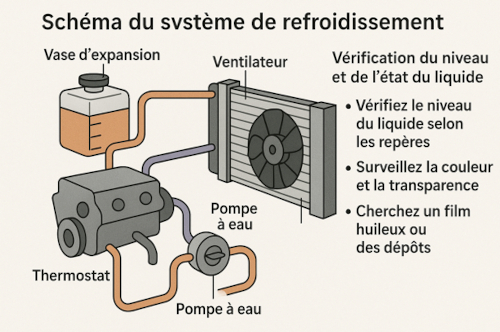 Légende du schéma :
Légende du schéma : Le circuit fermé comprend le vase d’expansion avec ses repères de niveau, le radiateur équipé de son ventilateur de refroidissement, la pompe à eau qui assure la circulation, et le thermostat qui contrôle le débit. Les durites orange relient tous ces composants en un système cohérent où le liquide circule continuellement pour évacuer la chaleur du moteur vers le radiateur.
Comment vérifier le niveau et l’état du liquide de refroidissement
Pour contrôler efficacement votre système de refroidissement, effectuez ces vérifications simples mais essentielles. Contrôlez toujours le niveau moteur froid, idéalement avant le premier démarrage de la journée. Le liquide doit se situer entre les repères « MIN » et « MAX » du vase d’expansion.
Examinez la couleur et la transparence du liquide : un liquide sain présente une couleur vive (rouge, vert, bleu selon le type) et reste transparent. Un liquide trouble, brunâtre ou contenant des particules indique une contamination nécessitant un remplacement immédiat.
Vérifiez l’absence de film huileux à la surface, signe d’un mélange avec l’huile moteur révélant une défaillance du joint de culasse. Inspectez visuellement les durites pour détecter traces de liquide, gonflements ou fissures. Une odeur sucrée persistante sous le capot peut également signaler une fuite dans le système.
Signes d’alerte à surveiller en été
Plusieurs indicateurs permettent de détecter un problème de refroidissement avant la panne. L’aiguille de température qui dépasse la zone normale constitue le premier signal d’alarme. Une baisse du niveau de liquide dans le vase d’expansion, visible même véhicule froid, indique souvent une fuite dans le circuit.
Les statistiques montrent que 40% des pannes estivales sont liées à des problèmes de refroidissement. Une vapeur s’échappant du capot, des traces de liquide coloré sous le véhicule ou un ventilateur de radiateur qui fonctionne en continu nécessitent un contrôle immédiat.
Conseils pratiques pour l’entretien estival
Vérifiez le niveau de liquide de refroidissement toutes les deux semaines pendant l’été, moteur froid uniquement. Inspectez visuellement les durites pour détecter d’éventuelles fissures ou gonflements. Nettoyez régulièrement les ailettes du radiateur avec de l’air comprimé pour maintenir une circulation d’air optimale.
Remplacez le liquide de refroidissement selon les préconisations constructeur, généralement tous les 3 à 5 ans selon le type utilisé. Un liquide dégradé perd ses propriétés anticorrosion et sa capacité à transférer efficacement la chaleur.
En cas de surchauffe, arrêtez-vous immédiatement dans un endroit sûr, coupez le moteur et attendez qu’il refroidisse avant d’ouvrir le capot. N’ajoutez jamais d’eau froide dans un moteur chaud, cela pourrait causer des dommages irréversibles.
Une surveillance attentive du système de refroidissement vous garantit des trajets sereins tout l’été et préserve la fiabilité de votre véhicule sur le long terme.
Sources et références
– AUTODOC CLUB
– ADAC (Allgemeiner Deutscher Automobil-Club) – Statistiques européennes sur les pannes estivales et études techniques
– Conseil National des Professions de l’Automobile (CNPA) – Recommandations professionnelles pour l’entretien automobile
– ANFA (Association Nationale pour la Formation Automobile) – Procédures de diagnostic et de maintenance




